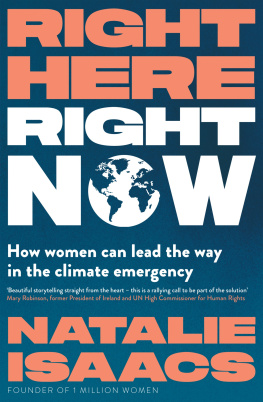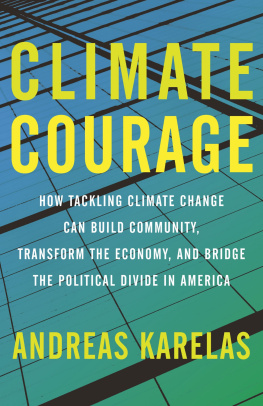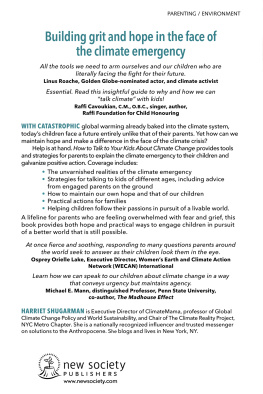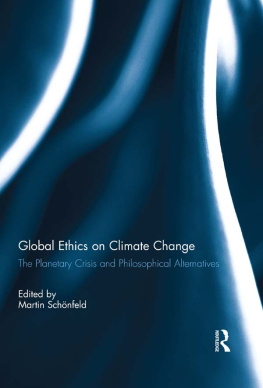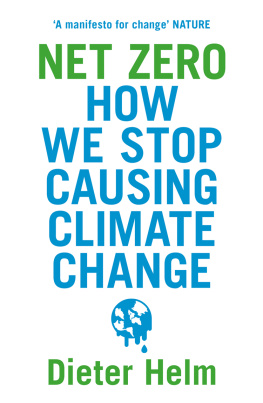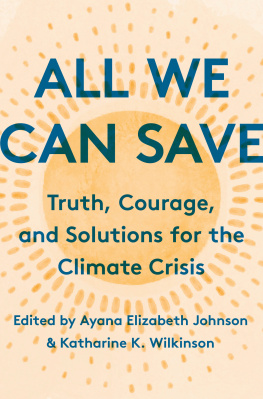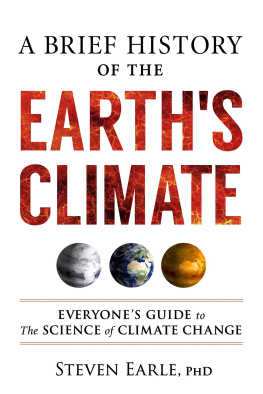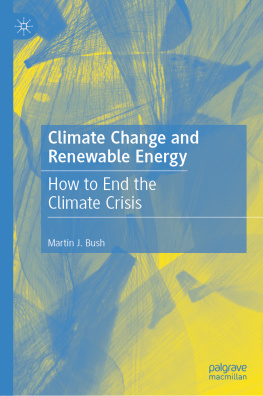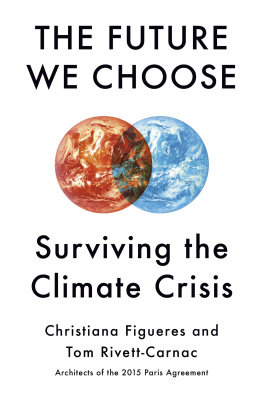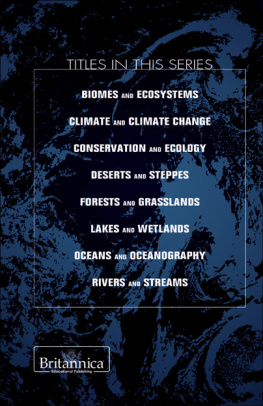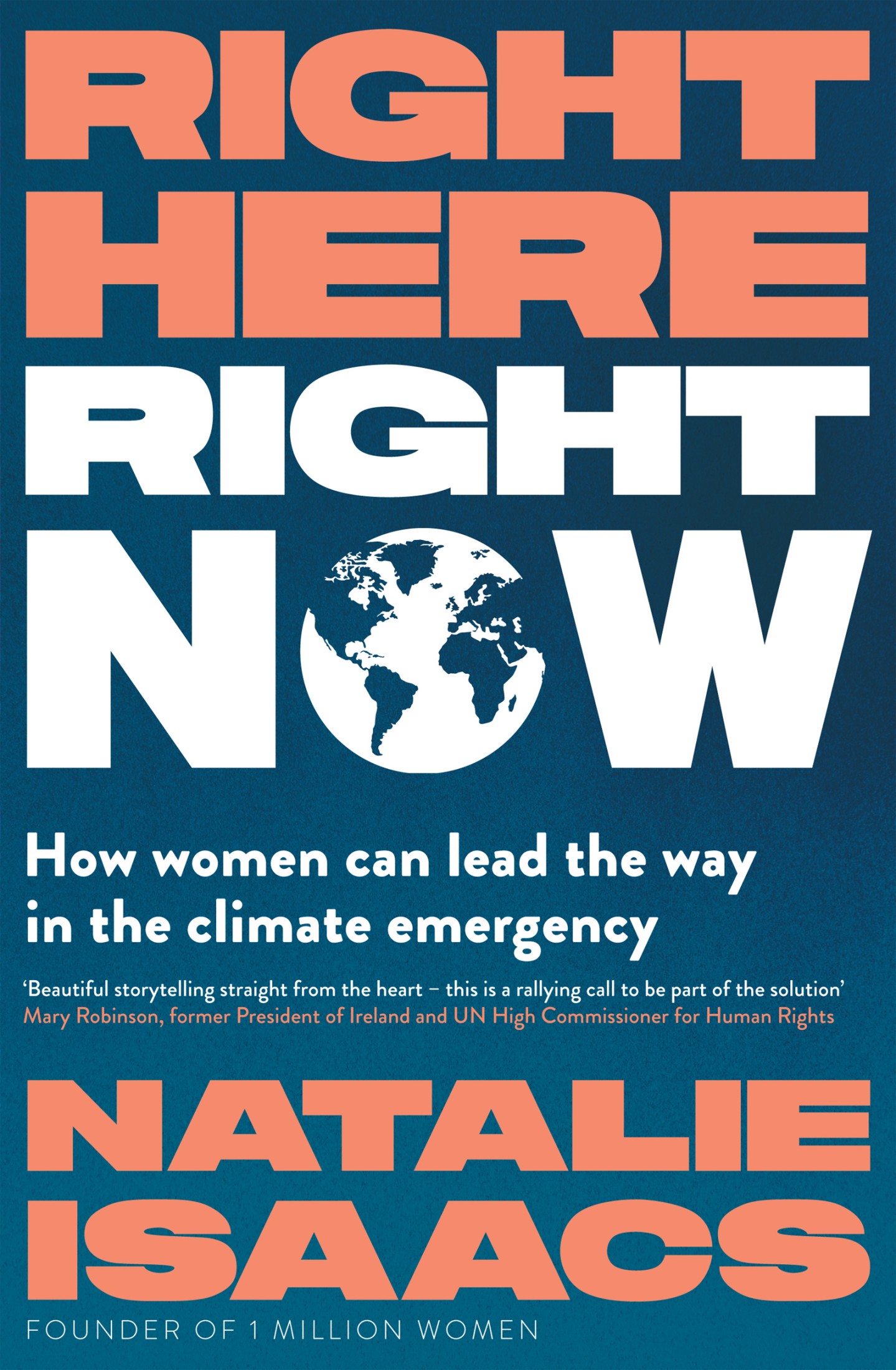Harper, Elijah and Noa my grandchildren.
Every moment of every single day I do what I do for you. Every
bit of CO2 that I can prevent from entering the atmosphere, every
person I can influence to do the same, every mind I can change,
every voice I can help empower, every community I can engage is
for you, and for all the generations to come.
CONTENTS
We all share a climate. We share its past, and we share in shaping its future. Right now we are at a critical moment for the Earths climate, which means we share responsibility for what we can do about it today.
Taking action on things I can directly influence has been fundamental to my evolution since the earliest days in my own climate journey. Getting my electricity bill down, reducing my food waste, buying less stuff, saying no to overpackaging these things were all within my immediate control. Achieving an action, however big or small, propelled me on to the next step, because I was seeing results, and wanted to do more.
The upside was clear. I had more money in my pocket. I had come away from the shopping centre with only what I needed. I was seeing less going into my bin. I was actually feeling as though Id been set free, thanks to my new less-is-more kind of life. When I saw these immediate results, I began to see the connection between the way I lived and the planet that I live on.
I realised everything I did was connected to Earth. I felt this in my heart, not just logically in my head. Making that emotional connection was profound.
To this day, I will tell anyone wholl listen to just get going to act in your own life, no matter how small the action you start with. That action leads to more action, which will lead to big lifestyle change, which leads to feeling powerful because you really are empowered. You find your confidence, and your voice and your storytelling, and suddenly youre on track to transform your entire life, and to confidently demand more from governments, big brands and corporations.
The moment everything changed
My own breakthrough came in 2006. It was a hot, fiery early spring, which seemed to underscore the message of the film I was watching. It was US Vice President Al Gores breakthrough documentary, An Inconvenient Truth. The Academy Award-winning film laid bare the climate challenge for humanity. It offered a new narrative that stripped away the overwhelming complexity of climate change, and it began to map out a set of actions we could all take.
Until then, Id been living my life as a disengaged citizen of Earth, strangely detached from any consequences of my actions or lifestyle. Suddenly, along with many others, I sat up and started to understand both how serious the challenge of climate change was and how I could engage with the climate crisis as an individual and as part of a collective.
In these early years, I saw things quite simplistically. Burning coal to create steam to spin turbines to generate the electricity to power my home was a big greenhouse gas pollution problem, and a primary cause of the human-induced global warming. So I responded directly, in my daily life, by working on cutting my familys household electricity use in order to reduce our contribution to climate change.
I started switching more things off, to eliminate waste. I studied our electricity usage and found ways to trim it. I ditched our clothes dryer, using sun and wind and the backyard clothesline instead, and swapped out our old-style incandescent light globes, replacing them with energy-efficient compact fluorescent lights. Pretty soon Id cut our electricity use by one-fifth, and our energy bill went down too.
Excited and encouraged, I looked for other opportunities around the house. I discovered that food waste was an enormous contributor to the climate crisis, and I led my household to cut our food waste too. We took more care buying food and stored it better, paid more attention to use by and best before dates, did more with leftovers, sent less to landfill and became more conscious as consumers.
For me, these small actions led to the birth of a right here right now agenda, one in which you see results that bring about immediate positive change however big or small and then move on to another thing, and then another. The more I did, the more empowered I felt, and the more I wanted to do.
The more I did, the more empowered I felt, and the more I wanted to do.
My familys negative impact on the planet, our footprint, was being reduced. But at the same time, our quality of life was as good as ever we were saving money by consuming less, and we felt better about our impact on the planet.
Before this personal awakening, Id felt powerless about climate change; it felt too immense and overwhelming, so why should I even try... ? Once I saw the results from making changes in my daily life, though, and realised I was preventing heat-trapping greenhouse gas pollution from going into the atmosphere, I began to understand that I was a powerful player in the story.
In that moment of personal action, when I realised my power, I knew I needed to do all I could to leave the world a better place for my children, and now my grandchildren, too, and all the generations who will follow.
And if individuals, in our millions and billions, were doing what I had just done taking practical actions in our own daily lives to cut waste and greenhouse gas pollution that must add up, right? It must add up as a powerful force: not only to prevent greenhouse gas pollution, but also to shift governments, big business, and human society as a whole.
I was hooked. I had found my confidence. I wanted to know more, do more. I had changed my life, and that in itself was an unstoppable force. And I wanted to share my experience so I could help other women, those who had felt the way I had disengaged from the rising emergency of climate change empower themselves to change their own lives too.
1 Million Women begins
Out of this grew 1 Million Women, launched in 2009 with a mission to engage literally a million women to reduce their footprints across their whole lifestyle home, work, food, fashion, shopping, travel.
In those early days of 1 Million Women, we were teaching women and girls about living climate action in all aspects of our lives. And we are still doing this, over a decade later, because its as important as ever. We were raising awareness about climate change and also educating people about the impact of human activities on global warming.
We pointed out that the climate crisis is a human-made problem, which began with the birth of the Industrial Revolution in the mid-18th century, and the dramatic rise in the use of fossil fuels that followed. By digging up coal to power their machines, and subsequently oil and gas, the early modern industrialists were simultaneously reinventing economic development and sowing the seeds of a huge new challenge for humanity.
We were explaining the core role that burning fossil fuels plays in the climate story, taking carbon from its safe natural storage in the ground and seabeds and turning it into pollution and exhaust. How these increased levels of carbon dioxide and other greenhouse gases like methane were then accumulating in the atmosphere, where they form a blanket around the Earth, preventing excess heat from being radiated back into space.
We used to debate whether to call it global warming and climate change, which sounded too mild given what was at stake, or whether we needed to elevate our language and urgency to terms like global heating and climate crisis. Today theres absolutely no question the world is heating up rapidly, heading into a temperature danger zone. We know we are facing a crisis for the planets climate, and in terms of time to act, its now an emergency.

